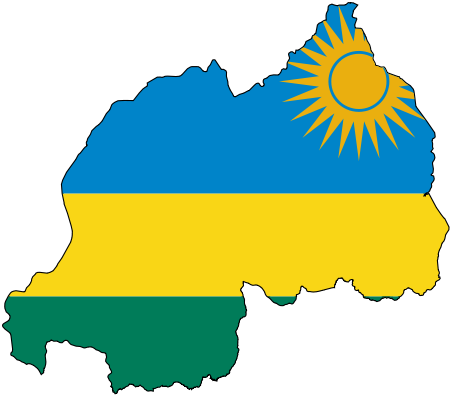Nanoscale Interactions
The Nanoscale Interactions program is part of the Environmental Engineering and Sustainabilitycluster, which also includes:
1) the Environmental Engineering program; and 2) the Environmental Sustainability program.
The goal of theNanoscale Interactions program is to support research toadvance fundamental and quantitative understanding of the interactions of nanomaterials and nanosystems with biological andenvironmental media.
Materials of interest include one- to three-dimensional nanostructures, heterogeneous nano-bio hybrid assemblies, dendritic and micelle structures, quantum dots, and other nanoparticles.Such nanomaterials and systems frequently exhibit novel physical, chemical, photonic, electronic, and biological behavior as compared to the bulk scale.
Collaborative and interdisciplinary proposals are encouraged.
Research areas supported by the program include:
Characterizationof interactions at the interfacesof nanomaterials and nanosystems,including both simple nanoparticles andcomplex and/or heterogeneouscomposites and nanosystems, with surrounding biological and environmental media; Developmentof predictive toolsbased on the fundamental behavior ofnanostructures to advancecost-effective and environmentally benignprocessing and engineeringsolutions over full-life material cycles; Examinationof the transport, interaction, and impact of nanostructured materials andnanosystems on biological systems and the environment; and Simulationsof nanoparticle behavior at interfaces, in conjunction with experimentalcomparisons, and new theories and simulation approaches for determiningthe transport and transformation of nanoparticles in various media.
Research in these areas will enable the design of nanostructured materials and heterogeneous nanosystems with desired chemical, electronic, photonic, biological, and mechanical properties for optimal and sustainable handling, manufacture, and utilization.
NOTE:Studies that focus on fundamental research concerning atomic- and molecular-scale interfacial phenomena and engineering of interfacial properties, processes, and materials, particularly as relevant towards advancing industrial chemical or biochemical processes, may be more appropriate for theInterfacial Engineeringprogram (CBET 1417).
Please consult with program directors prior to submission if you have questions about programmatic fit.
Innovative proposals outside of these specific interest areas may be considered.
However, prior to submission, it is recommended that the Principal Investigator contact the Program Director to avoid the possibility of the proposal being returned without review.
INFORMATION COMMON TO MOST CBET PROGRAMS Proposals should address the novelty and/orpotentially transformative natureof the proposed work compared to previous work in the field.
Also, it is important to address why the proposed work is important in terms of engineering science, as well as to also project the potential impact on society and/or industry of success in the research.
The novelty or potentially transformative nature of the research should be included, as a minimum, in the Project Summary of each proposal.
The duration of unsolicited proposal awards in CBET is generally up to three years.
Single-investigator award budgets typically include support for one graduate student (or equivalent) and up to one month of PI time per year(awards for multiple investigator projects are typically larger).
Proposal budgets that are much larger than typical should be discussed with the program director prior to submission.
Proposers can view budget amounts and other information from recent awards made by this program via the “What Has Been Funded (Recent Awards Made Through This Program, with Abstracts)” link towards the bottom of this page.
Faculty Early Career Development(CAREER)program proposals are strongly encouraged.
Award duration is five years.
The submission deadline for Engineering CAREER proposals is in July every year.
Learn more in the CAREER program description.
Proposals for Conferences, Workshops, and Supplements:
PIs are strongly encouraged to discuss their requests with the program director before submission of the proposal.
Grants forRapid Response Research(RAPID)andEArly-concept Grants for Exploratory Research(EAGER)are also considered when appropriate.Please note that proposals of these types must be discussed with the program director before submission.Grant Opportunities for Academic Liaison with Industry (GOALI)proposals that integrate fundamental research with translational results and are consistent with the application areas of interest to each program are also encouraged.
Please note that RAPID, EAGER, and GOALI proposals can be submitted anytime during the year.
Details about RAPID, EAGER, and GOALI are available in the Proposal & Award Policies & Procedures Guide(PAPPG), Part 1, Chapter II, Section E:
Types of Proposals.
Compliance:
Proposals that are not compliant with theProposal & Award Policies & Procedures Guide (PAPPG)will be returned without review.
1) the Environmental Engineering program; and 2) the Environmental Sustainability program.
The goal of theNanoscale Interactions program is to support research toadvance fundamental and quantitative understanding of the interactions of nanomaterials and nanosystems with biological andenvironmental media.
Materials of interest include one- to three-dimensional nanostructures, heterogeneous nano-bio hybrid assemblies, dendritic and micelle structures, quantum dots, and other nanoparticles.Such nanomaterials and systems frequently exhibit novel physical, chemical, photonic, electronic, and biological behavior as compared to the bulk scale.
Collaborative and interdisciplinary proposals are encouraged.
Research areas supported by the program include:
Characterizationof interactions at the interfacesof nanomaterials and nanosystems,including both simple nanoparticles andcomplex and/or heterogeneouscomposites and nanosystems, with surrounding biological and environmental media; Developmentof predictive toolsbased on the fundamental behavior ofnanostructures to advancecost-effective and environmentally benignprocessing and engineeringsolutions over full-life material cycles; Examinationof the transport, interaction, and impact of nanostructured materials andnanosystems on biological systems and the environment; and Simulationsof nanoparticle behavior at interfaces, in conjunction with experimentalcomparisons, and new theories and simulation approaches for determiningthe transport and transformation of nanoparticles in various media.
Research in these areas will enable the design of nanostructured materials and heterogeneous nanosystems with desired chemical, electronic, photonic, biological, and mechanical properties for optimal and sustainable handling, manufacture, and utilization.
NOTE:Studies that focus on fundamental research concerning atomic- and molecular-scale interfacial phenomena and engineering of interfacial properties, processes, and materials, particularly as relevant towards advancing industrial chemical or biochemical processes, may be more appropriate for theInterfacial Engineeringprogram (CBET 1417).
Please consult with program directors prior to submission if you have questions about programmatic fit.
Innovative proposals outside of these specific interest areas may be considered.
However, prior to submission, it is recommended that the Principal Investigator contact the Program Director to avoid the possibility of the proposal being returned without review.
INFORMATION COMMON TO MOST CBET PROGRAMS Proposals should address the novelty and/orpotentially transformative natureof the proposed work compared to previous work in the field.
Also, it is important to address why the proposed work is important in terms of engineering science, as well as to also project the potential impact on society and/or industry of success in the research.
The novelty or potentially transformative nature of the research should be included, as a minimum, in the Project Summary of each proposal.
The duration of unsolicited proposal awards in CBET is generally up to three years.
Single-investigator award budgets typically include support for one graduate student (or equivalent) and up to one month of PI time per year(awards for multiple investigator projects are typically larger).
Proposal budgets that are much larger than typical should be discussed with the program director prior to submission.
Proposers can view budget amounts and other information from recent awards made by this program via the “What Has Been Funded (Recent Awards Made Through This Program, with Abstracts)” link towards the bottom of this page.
Faculty Early Career Development(CAREER)program proposals are strongly encouraged.
Award duration is five years.
The submission deadline for Engineering CAREER proposals is in July every year.
Learn more in the CAREER program description.
Proposals for Conferences, Workshops, and Supplements:
PIs are strongly encouraged to discuss their requests with the program director before submission of the proposal.
Grants forRapid Response Research(RAPID)andEArly-concept Grants for Exploratory Research(EAGER)are also considered when appropriate.Please note that proposals of these types must be discussed with the program director before submission.Grant Opportunities for Academic Liaison with Industry (GOALI)proposals that integrate fundamental research with translational results and are consistent with the application areas of interest to each program are also encouraged.
Please note that RAPID, EAGER, and GOALI proposals can be submitted anytime during the year.
Details about RAPID, EAGER, and GOALI are available in the Proposal & Award Policies & Procedures Guide(PAPPG), Part 1, Chapter II, Section E:
Types of Proposals.
Compliance:
Proposals that are not compliant with theProposal & Award Policies & Procedures Guide (PAPPG)will be returned without review.
Agency: National Science Foundation
Office: National Science Foundation
Estimated Funding: $20,000,000
Office: National Science Foundation
Estimated Funding: $20,000,000
Obtain Full Opportunity Text:
NSF Program Desccription PD-20-1179
Additional Information of Eligibility:
*Who May Submit Proposals: Proposals may only be submitted by the following: -Institutions of Higher Education (IHEs) - Two- and four-year IHEs (including community colleges) accredited in, and having a campus located in the US, acting on behalf of their faculty members.Special Instructions for International Branch Campuses of US IHEs: If the proposal includes funding to be provided to an international branch campus of a US institution of higher education (including through use of subawards and consultant arrangements), the proposer must explain the benefit(s) to the project of performance at the international branch campus, and justify why the project activities cannot be performed at the US campus.
*Who May Serve as PI: At least one PI or co-PI must be a PI or co-PI of a Phase I Institute funded under solicitation NSF 16-615, Transdisciplinary Research in Principles of Data Science Phase I (TRIPODS).
A list of these Phase I Institutes can be found at <a href="https://www.nsf.gov/cgi-bin/good-bye?https://nsf-tripods.org/institutes/">https://nsf-tripods.org/institutes/</a>.
PI teams must collectively possess appropriate expertise in all of the relevant disciplines and may include researchers in other fields.
It is anticipated that, in most cases, this requirement will be met by assembling teams of three or more individuals.
Teams may be composed of members at multiple institutions or a single institution.
Full Opportunity Web Address:
http://www.nsf.gov/funding/pgm_summ.jsp?pims_id=505696
Contact:
Agency Email Description:
If you have any problems linking to this funding announcement, please contact
Agency Email:
Date Posted:
2019-09-20
Application Due Date:
Archive Date:
2020-03-19
Social Entrepreneurship
Spotlight
Rwanda as Social Entrepreneur Fund Beneficiary

The Republic of Rwanda has been picked as one of the six African countries as beneficiaries for a new fellowship fund program designed at supporting social entrepreneurs in tackling issues on food security.

